Code profiling for memory usage
Writing Efficient Python Code

Logan Thomas
Scientific Software Technical Trainer, Enthought
Quick and dirty approach
import sys
nums_list = [*range(1000)]
sys.getsizeof(nums_list)
9112
import numpy as np
nums_np = np.array(range(1000))
sys.getsizeof(nums_np)
8096
Code profiling: memory
- Detailed stats on memory consumption
- Line-by-line analyses
- Package used:
memory_profiler
pip install memory_profiler
- Using
memory_profilerpackage
%load_ext memory_profiler
%mprun -f convert_units convert_units(heroes, hts, wts)
Code profiling: memory
- Functions must be imported when using
memory_profilerhero_funcs.py
from hero_funcs import convert_units
%load_ext memory_profiler
%mprun -f convert_units convert_units(heroes, hts, wts)
%mprun output
%mprun -f convert_units convert_units(heroes, hts, wts)
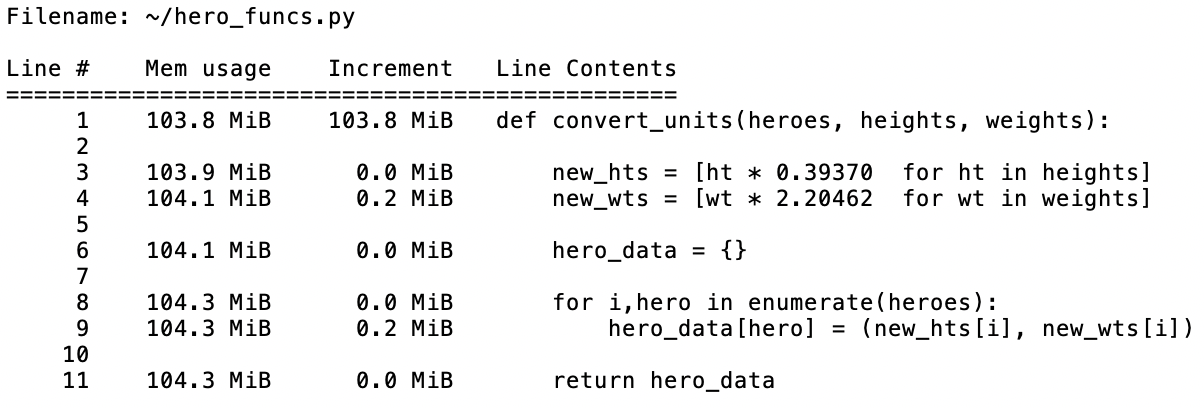
%mprun output
%mprun -f convert_units convert_units(heroes, hts, wts)
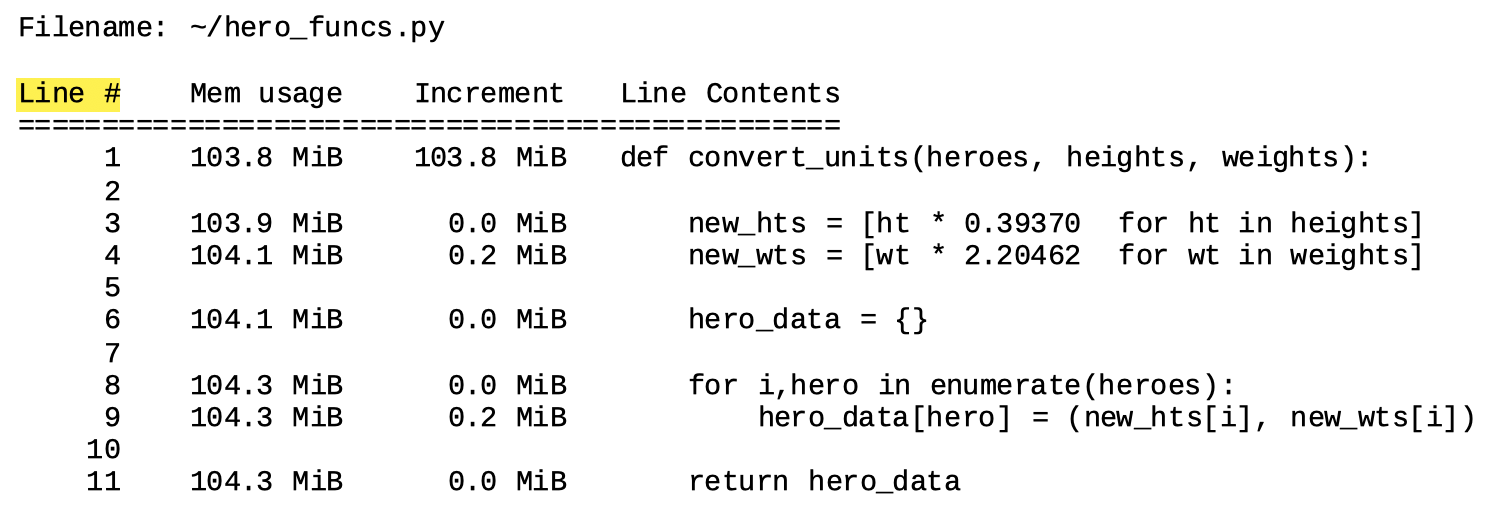
%mprun output
%mprun -f convert_units convert_units(heroes, hts, wts)
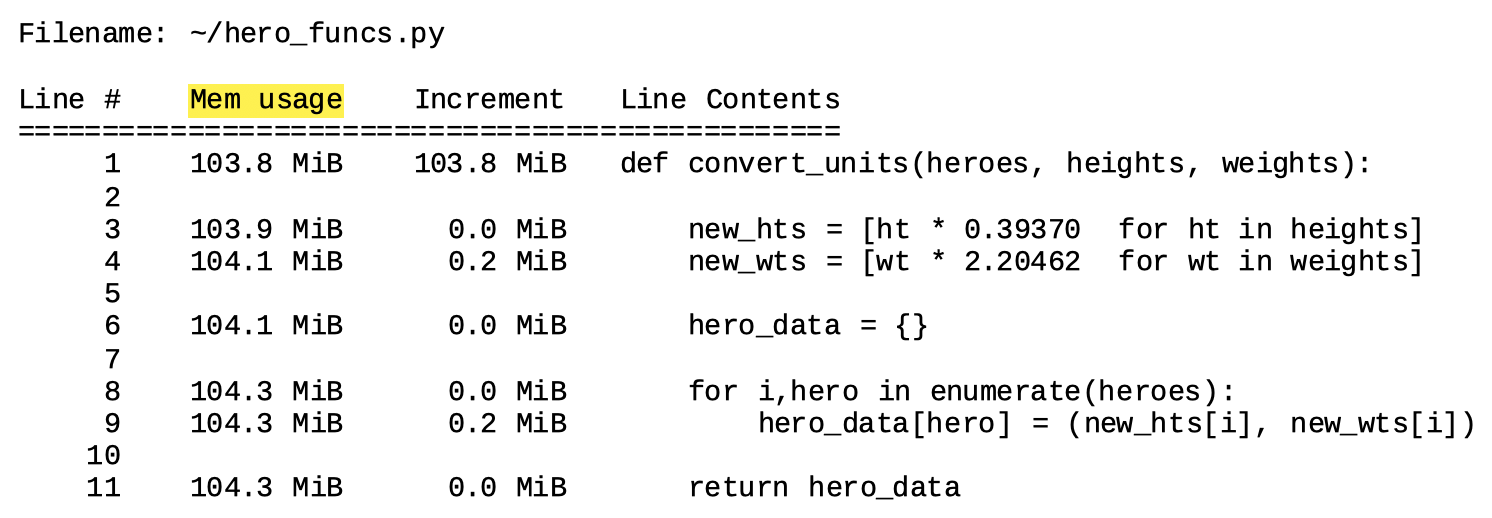
%mprun output
%mprun -f convert_units convert_units(heroes, hts, wts)
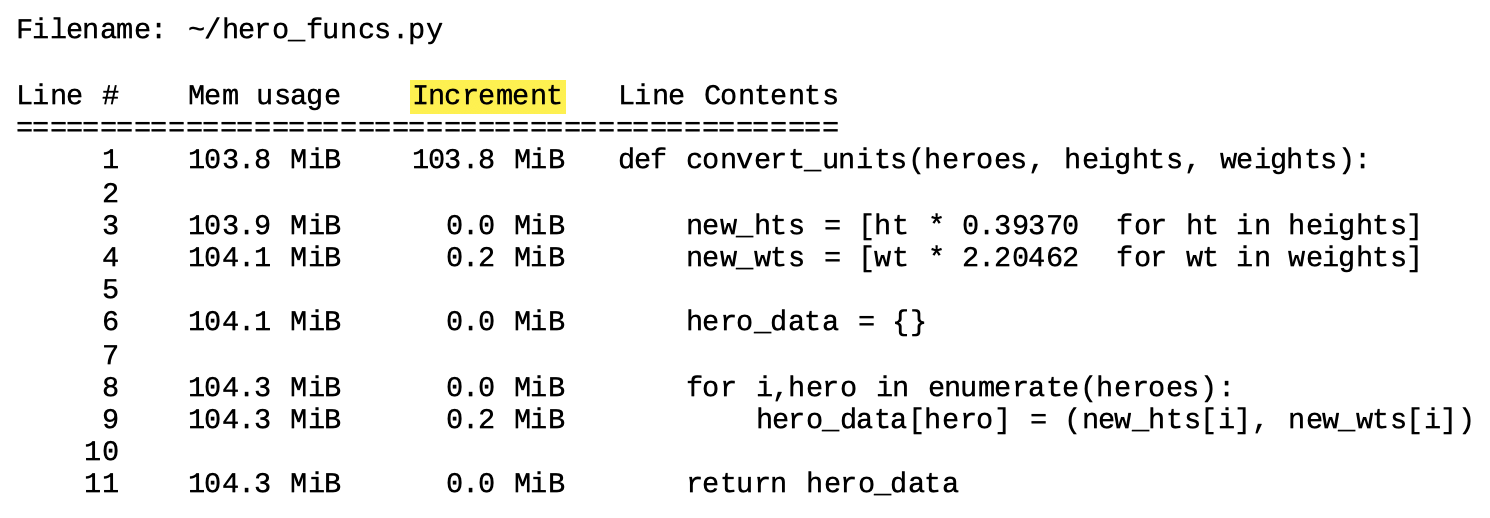
%mprun output
%mprun -f convert_units convert_units(heroes, hts, wts)
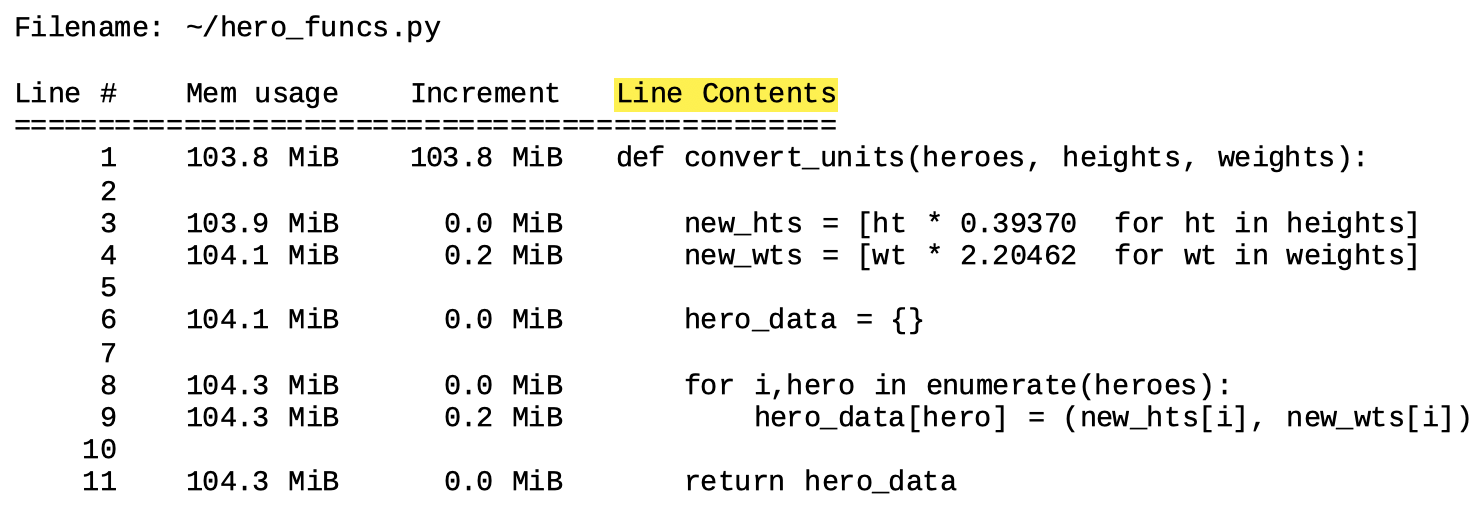
%mprun output
%mprun -f convert_units convert_units(heroes, hts, wts)

%mprun output caveats
%mprun -f convert_units convert_units(heroes, hts, wts)
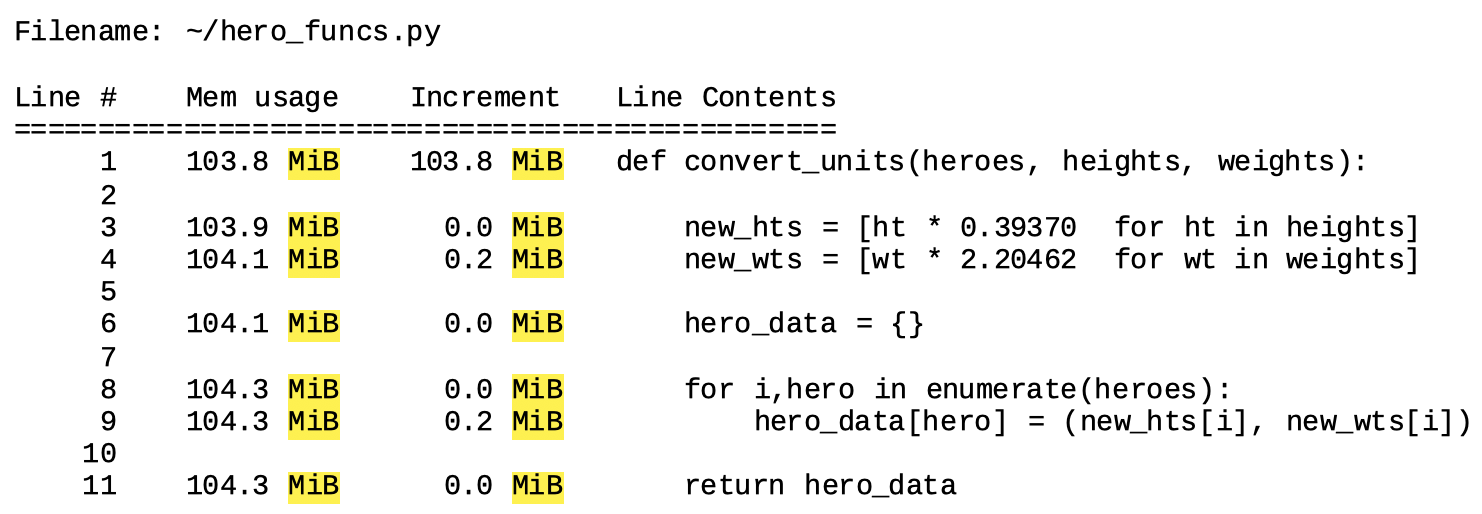
%mprun output caveats
Data used in this example is a random sample of 35,000 heroes.
(not original 480 superheroes dataset)
%mprun -f convert_units convert_units(heroes, hts, wts)

%mprun output caveats
Small memory allocations could result in 0.0 MiB output.
(using original 480 superheroes dataset)
%mprun -f convert_units convert_units(heroes, hts, wts)
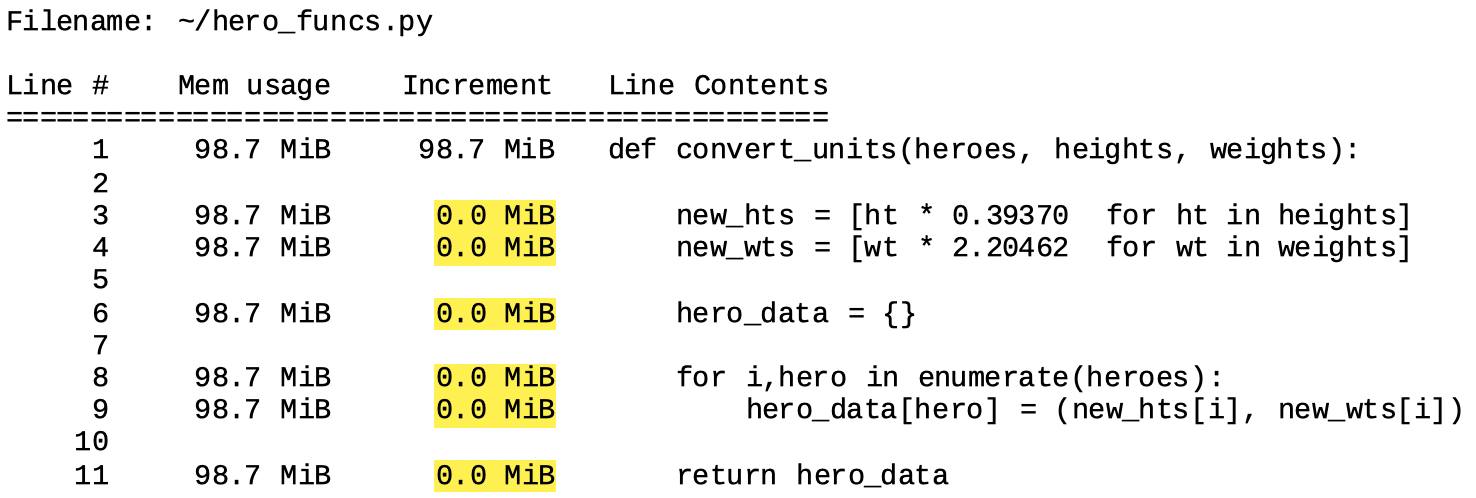
%mprun output caveats
- Inspects memory by querying the operating system
- Results may differ between platforms and runs
- Can still observe how each line of code compares to others based on memory consumption
Let's practice!
Writing Efficient Python Code

